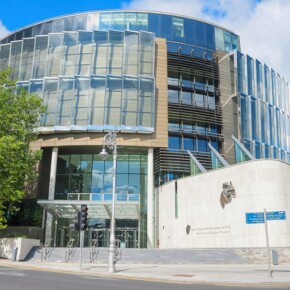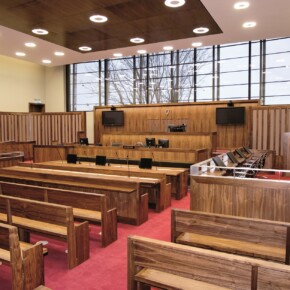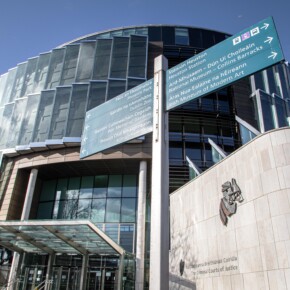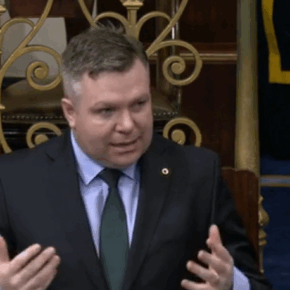Calls grow to move remains of Invincibles to Glasnevin Cemetery
Gary Ibbotson 25 Feb 2021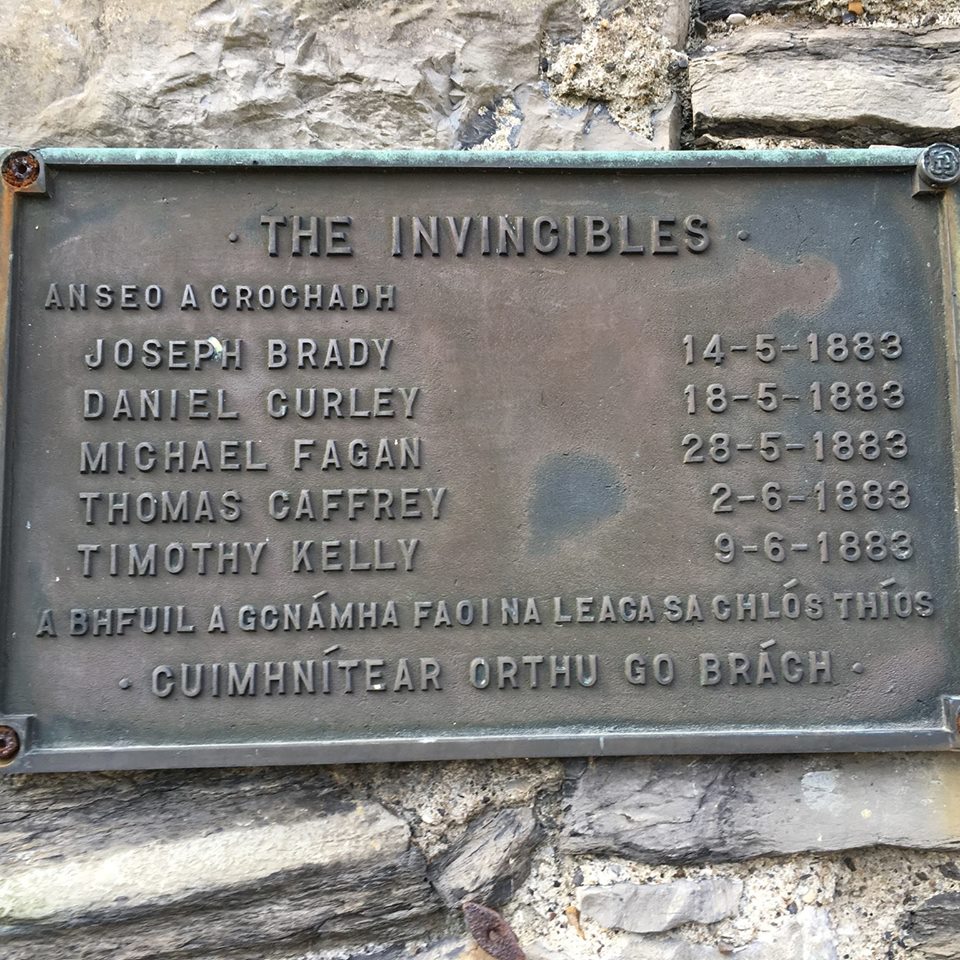
A campaign to exhume and reintern the remains of the five Irish National Invincibles buried below Kilmainham Jail has gained momentum despite the Office of Public Works (OPW) saying that it could not “envisage” the project be “recommended.”
The five men – Joe Brady, Daniel Curley, Tim Kelly, Thomas Caffrey and Michael Fagan – were arrested, trialled, and hanged in the jail for their part in the murders of Chief Secretary for Ireland, Lord Frederick Cavendish and Permanent Under Secretary, Thomas Henry Burke in the Phoenix Park in 1882.
The men were part of an organisation called the Irish National Invincibles, a splinter-group of the Irish Republican Brotherhood.
The Invincibles Reinternment Campaign, ran by members of the National Graves Association, is calling on the OPW to exhume the remains of the men and reintern them in Glasnevin Cemetery.
The initiative was originally suggested by late historian Dr Shane Kenna in 2013.
In an interview during the same year, Dr Kenna said: “As part of this decade of commemorations I would like to see those men buried in Glasnevin Cemetery.
“Whether you like them or not, I think we can all agree that after 130 years they’ve done their time.
“Their sentence was that they were to remain in Kilmainham Jail as long as that building was a prison.
“It’s a tourist attraction now, so they really shouldn’t be in there anymore.”
At the time of writing, 17 local authorities across the country have backed the campaign asking the OPW, which operates Kilmainham Jail, to carry out the exhumation works.
At the Fingal County Council meeting on Monday, February 8, a motion tabled by Sinn Fein councillor Anne Graves asking the chief executive to call on the OPW to begin the exhumation process was passed unanimously.
The Dublin City Council Arts, Culture, Leisure and Recreation Special Policy Committee also unanimously voted to approve a similar motion.
Donaghmede councillor Micheál MacDonncha said the “committee was favourable to the proposal and has referred it to the Commemorations and Naming Committee.
“I support the exhumation and did so publicly when I was Ardmhéara Bhaile Átha.
“The council itself has no direct role in this, except for lending its support to the campaign.”
The campaign says it wants to reintern the men’s remains in the republican plot of Glasnevin Cemetery which is maintained by the National Graves Association.
However, the OPW said that the process of exhuming the remains would be challenging and does not recommend the process be carried out.
“The Office of Public Works understands that it has been the subject of a number of calls in recent times within a large number of local authorities.
“In parallel, the contrary view has also been expressed by other parties that the historic significance of Kilmainham Gaol and its iconic status in the independence narrative make it a fitting resting place which should not be disturbed,” the OPW said.
“The OPWs consistent response to this matter has been that there are a number of challenges involved that would need to be considered before any viable proposal could proceed and they could not, in light of these, envisage that an exhumation could be recommended.
“The fact that the bodies were buried in quicklime and that there may be other remains of executed prisoners potentially in the same area is a significant complicating factor which would make accurate identification of remains difficult.
The OPW also said that the exhumation of the remains and their re-burial cannot be approved by one governing body, which would further complicate the process.
“Additionally, the OPW would clearly understand that any move to undertake an exhumation and re-interment project would certainly not be undertaken unilaterally and would have to be considered and approved in the first instance as a policy matter, which is outside our remit.”
Glasnevin Trust, which operates Glasnevin Cemetery, told Dublin People that it “has not been formally approached regarding the remains of the five Irish National Invincibles buried in Kilmainham.”


